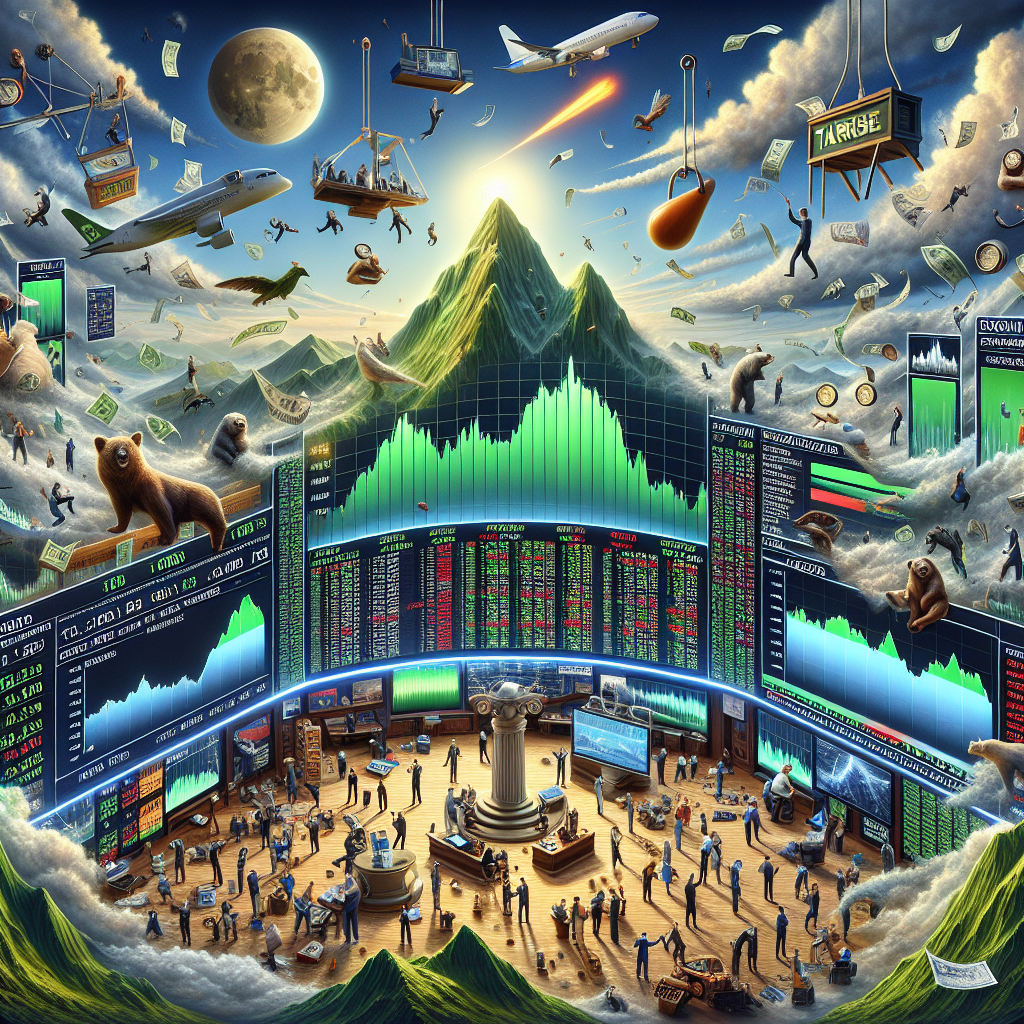Stock Market Rollercoaster Amid Trade Confusion and Geopolitical Tensions
Volatility Returns to Wall Street
On Monday, the stock market experienced a volatile trading session marked by uncertainty, geopolitical developments, and conflicting policy signals. Major indexes — including the Dow Jones Industrial Average, Nasdaq Composite, and S&P 500 — swung sharply throughout the day as investors digested a mix of rumors and official statements surrounding U.S.-China trade relations.
Conflicting Reports on Tariffs Stir Market Panic
Investor confidence took a hit early in the session after a report surfaced suggesting that President Donald Trump was planning to delay a scheduled round of tariffs on Chinese imports. Markets briefly rallied on the prospect of a de-escalation in the long-standing trade war. However, that gain quickly evaporated as the report was publicly withdrawn, casting further uncertainty over U.S. trade policy direction.
The situation escalated moments later when the White House announced a fresh proposal to implement an additional 50% tax on Chinese goods — a move interpreted by many analysts as a hardline shift in the ongoing trade dispute.
Market Reaction: A Tale of Two Halves
The major U.S. indexes illustrated the market’s confusion and anxiety:
- Dow Jones: Fell sharply after early gains evaporated, highlighting the impact of policy uncertainty on traditionally stable industrial stocks.
- Nasdaq: Tech stocks, often seen as bellwethers for international economic health, were particularly sensitive and closed lower after a volatile session.
- S&P 500: The benchmark index reflected a broader pullback, with all 11 sectors showing intraday losses before stabilizing in late trading.
Investors Weigh Risks of Escalating Trade War
The renewed threat of additional tariffs sparked fears among investors about slowing global growth and potential retaliatory actions from China. Many experts are concerned that higher tariffs could disrupt already fragile supply chains, increase the cost of goods for American consumers, and prolong inflationary pressures.
Market Strategist Insights
Financial analysts and strategists weighed in on the day’s events:
- “Each time there’s a conflicting headline, Wall Street is whiplashed,” said one senior equity strategist at a New York investment bank.
- “Traders are trying to price in geopolitical risk, and that’s notoriously difficult. The market doesn’t like uncertainty, and right now, it’s getting uncertainty in spades.”
Broader Economic Indicators Remain in Focus
While the tariff news dominated headlines, investors are also keeping an eye on upcoming economic data releases, including inflation figures, job growth reports, and consumer spending levels. Any signs of weakening could further influence how the Federal Reserve approaches interest rate policy, which in turn could impact equity markets.
Federal Reserve Policy on the Horizon
Market watchers believe that the Federal Reserve’s upcoming meeting could be pivotal. If inflation shows signs of cooling, it may give the Fed more room to pivot toward rate cuts, which, in theory, could support equity valuations and investor sentiment. However, a flare-up in trade tensions may complicate the Fed’s path forward.
Investor Takeaway: Brace for Choppiness
The key message for investors from Monday’s dramatic market swings is clear: turbulence driven by headlines is back. In this environment, long-term investors may need to tune out the noise, whereas day traders and algorithm-driven strategies will likely thrive on volatility.
Steps for Investors to Consider
- Reassess risk exposure: Diversify portfolios to reduce dependency on sectors sensitive to trade policies.
- Focus on fundamentals: Long-term investors should keep their eyes on earnings reports, consumer demand, and global macro indicators, rather than short-term political developments.
- Prepare for range-bound trading: Until clarity returns to the policy front, markets may remain directionless and prone to sudden reversals.
Conclusion: Navigating Unpredictability in 2025
With conflicting trade policy statements and global tensions shaping investor sentiment, it’s no surprise that the stock market reacted with intense volatility. Traders and long-term holders alike are adjusting strategies to cope with a market environment dominated by external shocks and political calculations. As the year progresses, strong corporate fundamentals and central bank policy will likely take center stage — but only if global disputes don’t overshadow them.
Staying informed, managing risk, and maintaining a long-term view may be the wisest course of action for those navigating today’s unpredictable financial waters.



Leave a Reply